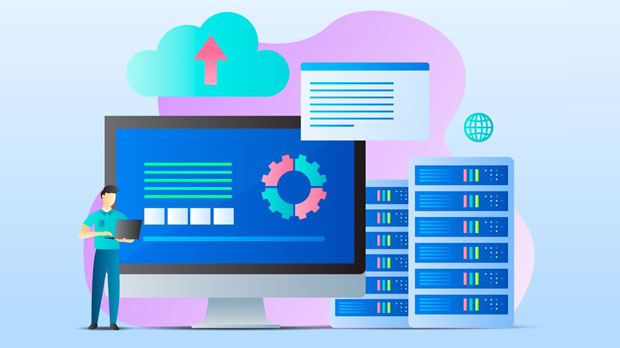In the world of proxies, PYPROXY and IPRoyal are two popular players that often come up when users need reliable connections in wireless environments. Connection stability, especially in fluctuating wireless networks, can make or break the experience for many users who rely on proxies for their day-to-day online activities. This article will delve into a comparison between pyproxy and IPRoyal in terms of their performance, reliability, and adaptability in wireless environments. By focusing on critical factors like latency, uptime, and security, we will provide an in-depth analysis to determine which service stands out in ensuring smooth, uninterrupted internet connections for users. Overview of Wireless Environment ChallengesWireless environments inherently come with their set of challenges. Wi-Fi networks are susceptible to interference from various sources such as other electronic devices, physical barriers, and congestion from multiple users. These factors can cause signal instability, high latency, and even packet loss, which can significantly impact the performance of a proxy service. For a proxy service to be effective in such conditions, it must handle these challenges by maintaining stable connections, fast response times, and ensuring the security of user data despite these adverse circumstances.Understanding the Importance of Proxy StabilityWhen evaluating proxies like pyproxy and IPRoyal, it is crucial to consider their stability in real-world scenarios. Connection stability refers to how consistently and reliably a proxy can maintain a secure link to the internet, particularly when the network environment is unstable. A stable connection ensures that users do not face timeouts, lag, or interruptions while browsing, streaming, or using services that depend on continuous data transfer. Stability is also essential for tasks like web scraping, data collection, and online gaming, where frequent disconnections can lead to delays, errors, or a loss of session data.Factors Influencing Connection Stability in Wireless EnvironmentsSeveral factors determine the connection stability of proxy services like pyproxy and IPRoyal in wireless environments. These factors include:1. Latency: The time it takes for data to travel from the user to the server and back. High latency can lead to slower load times and delays in response, which is particularly problematic in wireless environments where signal strength and quality can fluctuate. 2. Packet Loss: In wireless environments, signals can degrade due to interference or physical barriers. This leads to packet loss, where some data packets fail to reach their destination, causing delays, errors, and poor performance.3. Uptime and Reliability: Proxies need to be available consistently, without downtime. In wireless environments, where users are already dealing with network instability, having a proxy with high uptime ensures that users can rely on their service at any given time.4. Security Measures: In wireless environments, the increased risk of eavesdropping and unauthorized access makes security an essential factor. Proxies must offer robust encryption and secure tunneling protocols to ensure data privacy and protection from external threats.pyproxy's Performance in Wireless Environmentspyproxy, known for its premium proxy services, aims to offer excellent performance even in fluctuating network conditions. The company boasts a wide range of proxy types, including residential, mobile, and datacenter proxies, allowing users to choose the most suitable option for their needs.1. Latency and Speed: pyproxy's proxies are typically designed for low latency, which is crucial in maintaining smooth connections in wireless environments. Their residential proxies use IP addresses from actual ISPs, which often results in more reliable connections and lower chances of blacklisting, a problem common in unstable wireless networks.2. Packet Loss: pyproxy’s network infrastructure is optimized for minimizing packet loss. By leveraging a distributed network of proxy servers located worldwide, the company is better equipped to provide stable connections even when certain areas experience wireless instability.3. Uptime and Reliability: pyproxy offers 99.99% uptime, ensuring that users can rely on the service even during times of wireless network congestion. This high uptime is a testament to the company's infrastructure, which is built to withstand network fluctuations and provide stable access at all times.4. Security: pyproxy utilizes robust encryption standards to protect data integrity, even in wireless environments where the risk of unauthorized access is higher. This ensures that user sessions are secure and private.IPRoyal’s Performance in Wireless EnvironmentsIPRoyal is another notable proxy provider with a focus on performance and reliability. It offers a range of proxy services, from residential to datacenter proxies, with an emphasis on speed and security. In a wireless environment, IPRoyal’s reliability is determined by several key factors.1. Latency and Speed: IPRoyal is known for offering fast proxies with low latency, making it a viable choice for users in wireless environments. While IPRoyal doesn’t specialize in residential proxies, their network of datacenter proxies can still provide reasonably low-latency connections, depending on the location.2. Packet Loss: While IPRoyal works to reduce packet loss, their datacenter proxies are typically more susceptible to it when compared to residential proxies. Wireless environments, where network interference is common, may cause occasional instability in IPRoyal’s performance, especially in more congested areas.3. Uptime and Reliability: IPRoyal also guarantees high uptime, but its reliability may vary depending on the type of proxy and location. Their infrastructure is built to provide stable connections, though users may experience occasional disruptions due to the inherent limitations of wireless networks.4. Security: IPRoyal offers encryption and security measures, although some users have reported concerns regarding its overall level of protection in wireless environments. For highly sensitive tasks, users may need to implement additional security layers, such as VPNs, to ensure total privacy.Comparing pyproxy and IPRoyal in Wireless EnvironmentsWhen comparing pyproxy and IPRoyal in terms of wireless environment performance, both have strengths and weaknesses. pyproxy tends to outperform IPRoyal in connection stability, particularly in terms of latency and packet loss. The availability of residential proxies from pyproxy gives it an edge in wireless environments, where residential IP addresses are less likely to be blocked and can provide more stable connections.On the other hand, IPRoyal offers competitive speeds and low latency but may face occasional challenges due to packet loss in wireless environments. While its datacenter proxies can still deliver satisfactory performance, users in areas with heavy wireless interference may experience instability or slower speeds.Conclusion: Which Proxy Service is Best for Wireless Environments?In conclusion, when it comes to connection stability in wireless environments, pyproxy generally outperforms IPRoyal due to its focus on residential proxies, low latency, and higher uptime reliability. While IPRoyal offers decent performance, especially for users seeking faster, more affordable solutions, pyproxy’s infrastructure is better equipped to handle the challenges of wireless networks.For users who prioritize reliability and uninterrupted service in fluctuating wireless conditions, pyproxy is likely the better choice. However, IPRoyal can still serve as a good option for users on a budget or those who don’t need the highest level of stability. Ultimately, the best choice will depend on specific user requirements, including the type of proxy needed, security concerns, and the level of stability required for the intended tasks.
Oct 22, 2025



































































